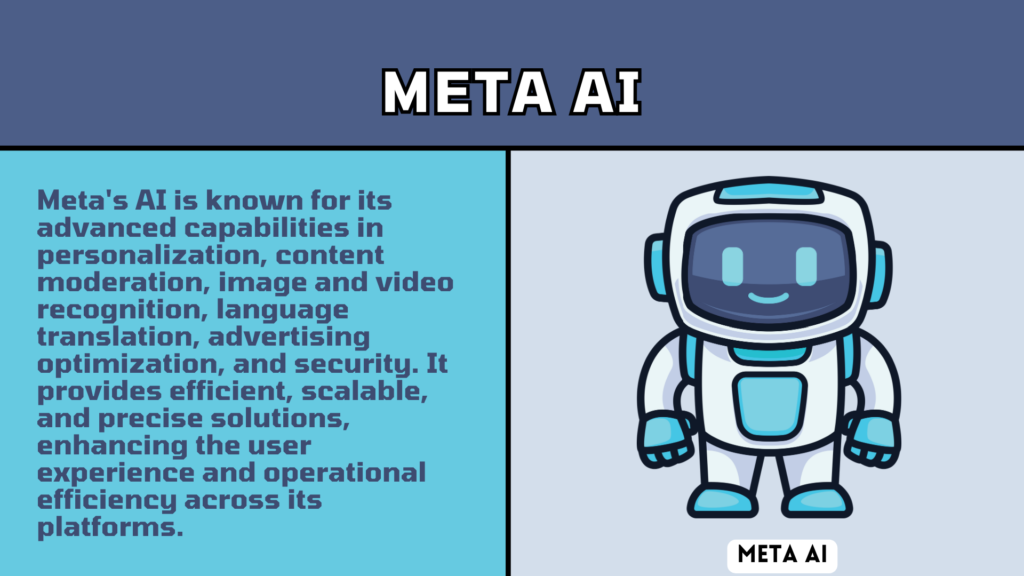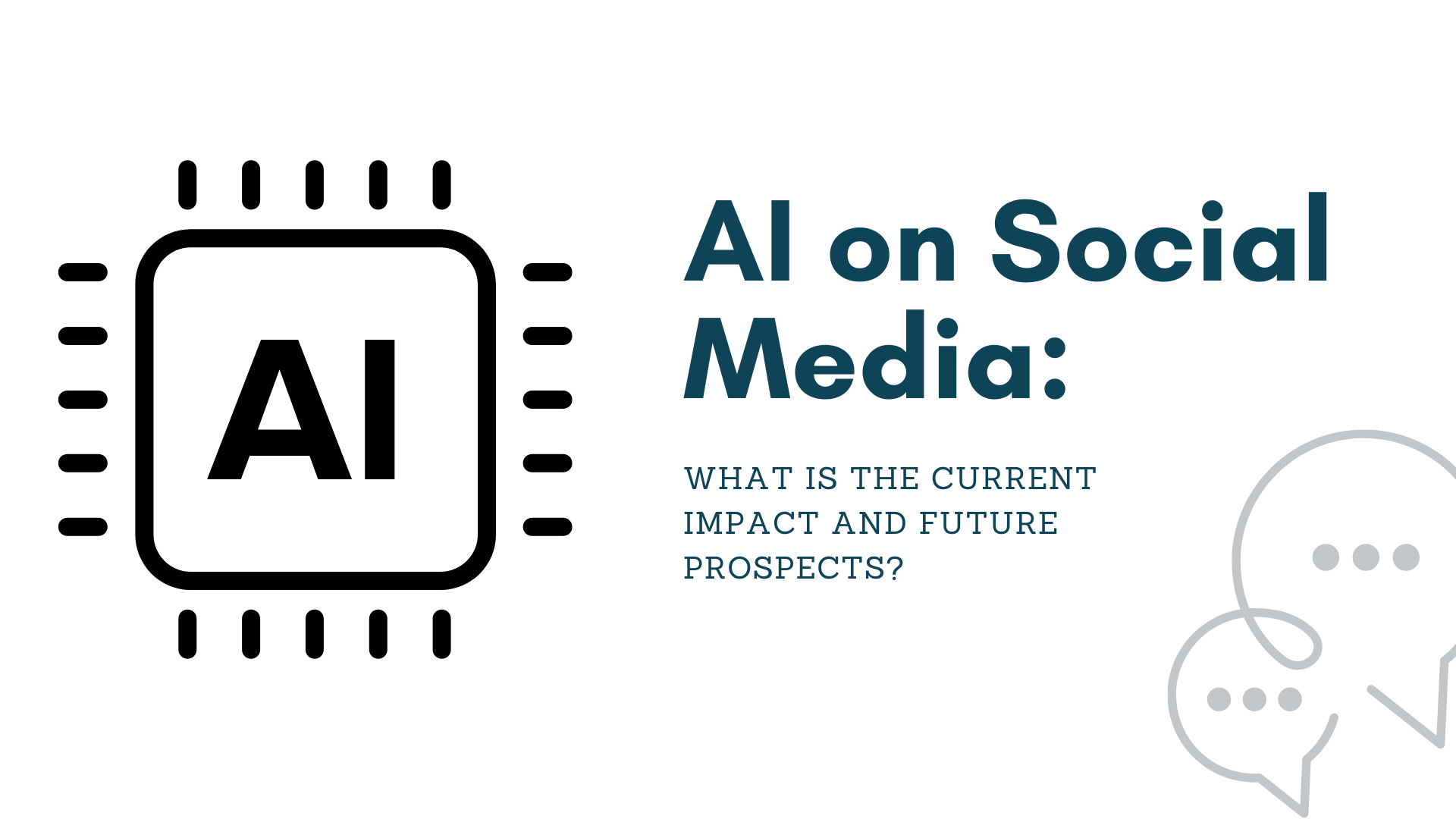AI on social media?
Artificial intelligence (AI) has permeated various aspects of our daily lives, significantly transforming the way we interact with technology. Social media is one of AI’s most influential areas. From enhancing the user experience to revolutionizing marketing strategies, AI’s role in social media is multifaceted and ever-expanding. This article delves into the various aspects of AI’s integration into social media, exploring its benefits, drawbacks, and potential future impact.
What is social media?
Social media refers to digital platforms that enable users to create, share, and engage with content, as well as connect with other users. These platforms include Facebook, Twitter, Instagram, LinkedIn, TikTok, and many others. Social media has become a vital part of modern communication, allowing individuals and organizations to reach vast audiences instantly.
Social media’s key features include:
- User-generated content: Users can create and share their own content, such as posts, photos, videos, and stories.
- Interaction and engagement: Platforms facilitate interactions through likes, comments, shares, and direct messaging.
- Networking: Users can connect with friends, family, colleagues, and like-minded individuals.
- Real-time information: Social media provides instant access to news, trends, and events globally.
What are the benefits of AI on social media platforms?
AI has brought numerous benefits to social media platforms, enhancing the user experience and operational efficiency. Here are some key advantages:
1. Improved user experience
AI algorithms analyze user behavior and preferences to curate personalized content feeds, ensuring that users see posts and advertisements that are most relevant to them. This personalization improves user engagement and satisfaction.
2. Improved content moderation
AI tools help social media platforms identify and remove inappropriate content, such as hate speech, violence, and misinformation. Machine learning models can detect harmful content faster and more accurately than human moderators, ensuring a safer online environment.
3. Advanced analytics
AI-driven analytics tools provide insights into user behavior, engagement metrics, and content performance. These insights help marketers and content creators optimize their strategies, leading to more effective campaigns and higher ROI.
4. Chatbots and Customer Service
AI-powered chatbots handle customer inquiries on social media platforms, providing instant responses and resolving issues efficiently. This enhances customer service and reduces the workload on human agents.
5. Predictive analytics
AI can predict trends and user behavior, helping businesses stay ahead of the curve. Predictive analytics enable marketers to anticipate customer needs and tailor their strategies accordingly.
Must Read : Top 10 AI Writing Tools for Copywriters & Bloggers
What Are the Advantages and Disadvantages of AI on Social Media?
While AI offers numerous benefits, it also comes with certain drawbacks. Here’s a balanced view of the advantages and disadvantages:
Advantages
- Efficiency and Speed: AI can process vast amounts of data quickly, providing real-time insights and automating repetitive tasks.
- Scalability: AI systems can handle large volumes of content and user interactions, making them ideal for growing social media platforms.
- Accuracy: Machine learning models can analyze data with high precision, leading to more accurate targeting and content recommendations.
- Cost-effectiveness: AI reduces the need for large teams of human moderators and analysts, lowering operational costs.
Disadvantages
- Privacy Concerns: The use of AI involves collecting and analyzing vast amounts of user data, raising concerns about privacy and data security.
- Bias and Fairness: AI algorithms can perpetuate biases present in the training data, leading to unfair outcomes and discrimination.
- Job Displacement: The automation of tasks traditionally performed by humans can lead to job losses in areas like content moderation and customer service.
- Dependence on Technology: Over-reliance on AI can lead to reduced human oversight, potentially causing issues if the technology fails or makes errors.
What role does AI play in social media?
AI’s applications in social media are diverse and continually evolving. Here are some of AI’s primary applications in social media:
1. Content Recommendation
AI algorithms analyze user preferences and behaviors to recommend content that is likely to interest them. Platforms like YouTube, Netflix, and Instagram use AI to keep users engaged by showing personalized content.
2. Sentiment analysis
AI tools analyze social media posts to gauge public sentiment about products, brands, and events. This helps companies understand their audience’s feelings and tailor their strategies accordingly.
3. Image and Video Recognition
AI-powered image and video recognition tools identify and categorize visual content, allowing for better content organization and search capabilities. Platforms like Facebook and Instagram use these tools to tag and recommend visual content.
4. Social listening
AI-driven social listening tools monitor social media conversations to identify trends, track brand mentions, and gather customer feedback. This real-time monitoring helps businesses respond promptly to customer needs and market changes.
5. Influencer Marketing
AI tools analyze influencer profiles and their followers to identify the best influencers for marketing campaigns. This ensures that brands collaborate with influencers who have the right audience and engagement levels.
Will AI replace social media managers?
The rise of AI has led to concerns about job displacement, particularly for social media managers. While AI can automate many tasks traditionally performed by social media managers, it is unlikely to replace them entirely. Here’s why:
1. Human Creativity and Strategy
AI excels at analyzing data and automating tasks, but it lacks the creative and strategic thinking that human social media managers bring. Crafting engaging content, developing brand voice, and creating innovative campaigns require human creativity.
2. Personal Touch
Building genuine relationships with followers and customers often requires a personal touch that AI cannot replicate. Human social media managers can engage with users on a deeper level, fostering loyalty and trust.
3. Crisis Management
In times of crisis, human judgment and empathy are crucial for effective communication. Social media managers can navigate complex situations with sensitivity and nuance, something AI is not yet capable of.
4. Continuous learning
While AI can learn from data, it lacks the ability to adapt to new trends and changes in the social media landscape as quickly as humans can. Social media managers continuously update their skills and strategies to stay relevant.
Meta (formerly Facebook) has been at the forefront of integrating AI into its social media platforms, enhancing the user experience, improving security, and optimizing advertising. Here are some examples of how Meta uses AI:

1. Content personalization
Example: News Feed Algorithms Meta uses AI to curate personalized content for users’ news feeds. Machine learning algorithms analyze user behavior, preferences, and interactions to prioritize posts, ads, and stories that are most likely to engage each user. This personalization ensures that users see content that is relevant and intriguing to them, keeping them engaged on the platform for longer.
2. Image and Video Recognition
Example: Automatic tagging Meta employs AI-powered image and video recognition technologies to automatically tag people in photos and videos. The facial recognition system can identify individuals in images uploaded to the platform, making it easier for users to tag friends and family. This feature enhances the social experience by facilitating connections and interactions.
3. Natural Language Processing (NLP)
Example: Language Translation Meta uses AI-driven NLP to offer real-time translation of posts and comments in different languages. This feature helps break down language barriers, enabling users from diverse linguistic backgrounds to communicate and engage with each other. The AI models continuously learn and improve, providing more accurate and contextually relevant translations over time.
4. Content moderation
Example: Detecting Harmful Content Meta leverages AI to identify and remove harmful content, including hate speech, misinformation, and graphic violence. Machine learning models scan posts, comments, images, and videos to detect violations of community standards. This automated content moderation helps maintain a safer and more welcoming environment for users.
5. Enhancing user interaction
Messenger Chatbots: AI-powered chatbots in Messenger provide automated customer service and support for businesses. These chatbots can handle a wide range of tasks, from answering frequently asked questions to processing orders and reservations. These chatbots provide efficient and responsive customer service by using natural language processing, resulting in increased user satisfaction.
6. Advertising Optimization
For example, an ad targeting Meta uses AI to optimize ad delivery and targeting, ensuring that advertisements reach the right audience. Machine learning algorithms analyze user data, including demographics, interests, and online behavior, to match ads with users who are most likely to be interested in the advertised products or services. This targeted approach increases the effectiveness of ad campaigns and maximizes return on investment for advertisers.
7. Virtual and Augmented Reality
Example: Horizontal Workrooms Meta’s AI-driven virtual reality platform, Horizon Workrooms, uses AI to create immersive and interactive virtual meeting spaces. AI enhances the experience by enabling realistic avatar movements and expressions, improving spatial audio, and facilitating real-time collaboration. This application of AI in VR aims to revolutionize remote work and social interactions.
8. Data Privacy and Security
Example: Detecting unauthorized accessMeta employs AI to monitor and detect suspicious activity on user accounts. Machine learning models analyze patterns of login attempts and user behavior to identify potential security threats. The system can trigger additional security measures, like two-factor authentication, to safeguard user accounts from unauthorized access if it detects unusual activity.
9. Social Good
Example: Disaster Response Meta uses AI to assist in disaster response efforts. AI tools analyze real-time data from social media posts to map disaster-affected areas and identify urgent needs. This information helps organizations and first responders allocate resources more effectively and provide timely assistance to those in need.
Conclusion
AI has significantly transformed social media by enhancing the user experience, improving content moderation, and optimizing marketing strategies. While AI offers numerous benefits like efficiency, scalability, and advanced analytics, it also presents challenges such as privacy concerns and potential job displacement. Despite these challenges, AI is unlikely to fully replace human social media managers due to the need for creativity, personal engagement, and crisis management. The future of social media will likely see a collaborative effort between AI and humans, leading to more innovative and effective platforms.
FAQs
Q: What is social media? Social media are digital platforms that enable users to create, share, and interact with content, as well as connect with others globally. Examples include Facebook, Instagram, Twitter, and LinkedIn.
Q: How does AI enhance the user experience on social media? AI personalizes content feeds, making recommendations based on user behavior and preferences, which increases engagement and satisfaction.
Q: What are the benefits of AI in social media? Benefits include enhanced user experience, improved content moderation, advanced analytics, efficient customer service via chatbots, and predictive analytics.
Q: What are the disadvantages of AI in social media? Disadvantages include privacy concerns, potential biases in AI algorithms, job displacement, and over-reliance on technology.
Q: What role does AI play in social media content moderation? AI detects and removes harmful content such as hate speech, misinformation, and graphic violence more efficiently than human moderators.
Q: Can AI fully replace social media managers? A: No, AI cannot fully replace social media managers due to the need for human creativity, personal engagement, and nuanced crisis management.
Q: How does Meta use AI on its platforms? Meta uses AI for personalized content curation, image and video recognition, language translation, content moderation, chatbots, ad targeting, virtual and augmented reality, data security, and disaster response.
Q: What is the role of AI in advertising on social media? A: AI optimizes ad targeting by analyzing user data to ensure messages reach the right audience, increasing campaign effectiveness and ROI.
Must Read : Social Media Marketing Made Easy
Is Social Media Ruining Your Mental Health? 12 Tips to Take Back Control
Understanding CDK Cyber Attacks

